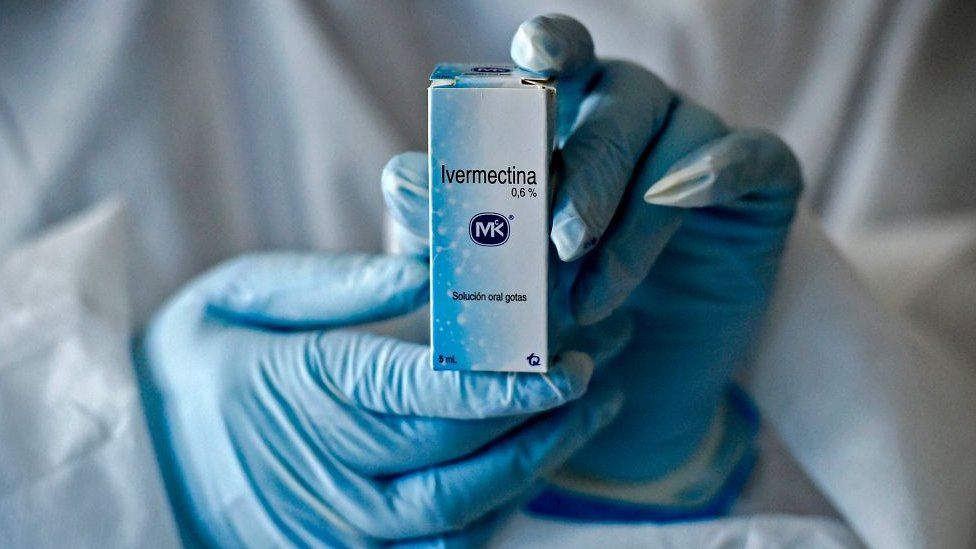University of Oxford scientists are trialling giving Ivermectin to people with Covid symptoms to see if it can keep them out of hospital.
The Principle study will compare those given the drug to patients receiving the usual NHS care.
The drug has become controversial after being promoted for use across Latin America and in South Africa, despite being so far unproven.
Previous studies of Ivermectin have generally been small or low quality.
Most commonly used to treat parasitic infections such as river blindness, spread by flies, Ivermectin has also been shown to kill viruses in petri dishes in the lab - although, at much higher doses than would usually be prescribed to people.
Dr Aurora Baluja, an anaesthesiologist and critical care doctor, said Ivermectin was often being given in parts of the world where there are high incidences of parasitic infections.
Covid patients who are also fighting a parasitic disease at the same time would be likely to fare worse and that might explains some of its seemingly positive effect.
Though there have been some early "promising" results from small and observational studies, Principle joint chief investigator Prof Richard Hobbs said it would be "premature" to recommend Ivermectin for Covid.
Observational studies look at people already taking the drug, rather than giving it to a group representative of the population.
So they fail to account for differences in the types of people who might choose that treatment, and other factors that might have been influencing the spread of the virus at the time.
'Gold standard'
An observational study previously suggested antibiotic Azithromycin might be helping Covid patients - but the Principle study later showed the drug was ineffective.
Trials such as Principle are seen as the "gold standard" because they can be much more sure they are measuring the effects of the drug and not that of other factors.
Despite the lack of good evidence so far, Ivermectin has been taken up by doctors or by individuals self-medicating in countries including Brazil, Bolivia, Peru, South Africa and the US.
In the US, provider SingleCare said 817 prescriptions had been filled for Ivermectin (which can also be used to treat skin conditions such as rosacea) in January and February 2021, compared with 92 in the same period last year.
Dr Stephen Griffin at the University of Leeds said, "much like hydroxychloroquine before, there has been a considerable amount of off-label use of this drug," based mainly on studies of the virus in the lab, not in people.
"The danger with such off-label use is that...the use of the drug becomes driven by specific interest group or proponents of non-conventional treatments and becomes politicised," he said, adding this trial should provide a "final answer" to whether or not Ivermectin should be used to treat coronavirus.
The Oxford team said they had selected Ivermectin to be included in the trial because it was "readily available globally" and known to be relatively safe (although, like most things, it can be toxic at very high doses).
Of the six other drugs in the Principle study of Covid treatments to be taken at home, only one - inhaled steroid budesonide - has so far proved effective.
Although, sister project the Recovery trial, of treatments for hospital patients, also discovered another steroid, dexamethasone, could treat Covid, which has been credited with saving more than 20,000 lives in the UK.
People aged 18-64 with an underlying health condition or experiencing breathlessness, and anyone aged 65 or over, can sign up to the Principle study within 14 days of having Covid symptoms or receiving a positive test.
https://www.bbc.com/news/health-57570377

